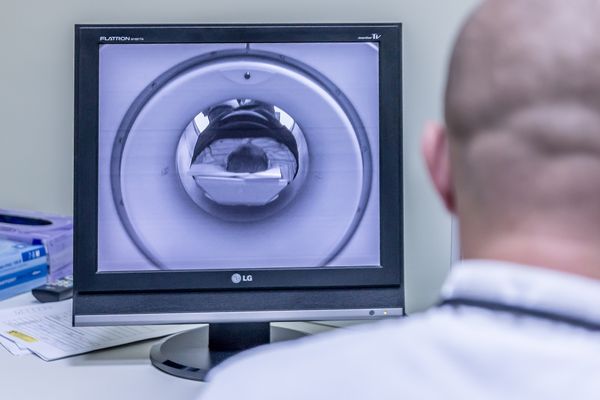How to become a "language genius"
It’s common knowledge that learning a foreign language is easier when we are young. But many adults still try to learn a new language.
That’s certainly my case. I recently started a golf blog in English, even though my native language is French. I showed the blog to some of my friends, and their reaction was something along the lines of “You must have the language ‘gene’”. People around me often think of me as a “genius” when it comes to languages. But I was never convinced that I had a “gift” for languages. However, a study published in PNAS got be thinking.
Many critics think that this study explains the existence of language learning “geniuses”. This study was performed by researchers at the University of Washington. According to this paper, our genes are 46% responsible for our success in language learning. In particular, a gene called “COMT” seems to be responsible for changes in the white matter, which are key to learning a new language.
Let’s take a look.
79 Chinese students put to the test

The team behind the study wanted to know why some adults could acquire a language faster. In the experiment, “all [students] have the same experience in the same class and they learn [the language] with the same instructions”, according to Ping Mamiya, neurologist and main author fo the paper.
In the study, 79 foreign students from China went through a 3-week intensive English program. 35 other students didn’t take part in the study, acting as a “control group”. The researchers eventually scanned the brains of students from both groups, trying to look for changes in structure and neuronal connections.
The “language learning gene”

The study shows that the structure and the connectivity between different areas of the brain got reinforced throughout the study, but decreased once the program was over. But what were the causes of these changes.
The researchers decided to look for DNA evidence. They then discovered that a gene named “COMT” was responsible for most of the changes observed.
The COMT gene comes in 3 flavors: AB, BB or AA. The Chinese students with the AB or BB version saw strong evolutions in the structure and connectivity of certain areas of their brain. The students with AA variant saw almost no changes.
The authors of the study concluded that in 46.2% of the cases, the improvements in language acquisition were directly due to the COMT gene in adults.
There is still some work to be done
Frank Ramus from the French research center CNRS confirms that learning depends on genetic factors. But he expresses serious doubts regarding this study.
It is hard to know which cerebral and genetic factors impact learning in individuals. And Frank Ramus thinks the data provided in the study isn’t convincing. He also thinks that the sample of 79 students is insufficient to reach conclusive results.
Patricia Kuhl (one of the authors of the study) admitted that this research is still young. It was a first attempt at finding correlations between cerebral factors and language learning ability. There is still a lot of work to be done in other to identify other potential factors.
Don’t compare yourself

Just this morning, I was listening to a podcast titled “Why we don’t feel rich”. The host argued that most of us don’t feel rich (financially) because we have a tendency to compare ourselves with people above us.
Think about it. You are boarding your plane to the Bahamas. You get in from the front door of the plane. Most airplanes have first class and business class passengers sitting in the front of the plane. So if you are flying coach, you will meet a bunch of people who are likely wealthier than you are.
But you are still going to the Bahamas! How many people on this planet can afford that kind of trip? My point is that you shouldn’t compare yourself with people with “superior” abilities, but instead try to focus on the fact that you are probably much better than a lot of other people.
Becoming a “language genius”

There are undoubtedly genetic factors when it comes to language learning ability. How much? That’s not clear at this point. However, one thing I know for sure is that people who are successful with languages have 1 thing in common: they use the right methods.
In high school, I suffered through Spanish classes and could barely hold a conversation after 5 years of “learning”. I was convinced that I didn’t have the language learning “gene”.
But I started learning Japanese in college, and using the right methods allowed me to become conversationally fluent in 2 years.
Here are the 3 main methods I use.
Use an SRS
SRS stands for “Spaced Repetition System”. These are basically flashcard apps that allow you to memorize words in the long term. SRS apps have an algorithm that automatically schedules a flashcard to be reviewed on a certain date based on how well you have retained the information.
I have been using SRS apps ever since I started learning Japanese. Many polyglots use SRS apps as well. There have been multiple studies showing the effectiveness of SRS on vocabulary retention. One study from Iowa State University found that “activities based on spaced repetition can lead to a nearly threefold improvement of vocabulary learning gains in EFL students without any changes to the rest of pedagogy in the classroom”.
Focus on comprehensive input
If you are a language learner already, you have probably heard of something called “comprehensive input”. This concept was popularized by Dr. Stephen Krashen.
After multiple decades of studying second language acquisition, Dr. Krashen found that students learned better when exposed to content that they could understand (comprehensible content). In other words, you should try to read and listen to things that are at your level, or slightly above.
It’s all about consistency
Clearly, there are learning methods that are more effective than others. However, don’t try to go for the most effective method if you don’t enjoy using it. Language learning is a long term endeavor, and you need to practice every day. You won’t be able to do that if you use methods that don’t fit your personal preferences.
It’s like dieting: Pretty much everyone can lose weight in the short term, but 95% of people regain that weight (and then some more). The difficult part of language learning is the same as that of dieting: don’t look for the magic pill or method, find something that you can maintain in the long term.
October 11, 2019



